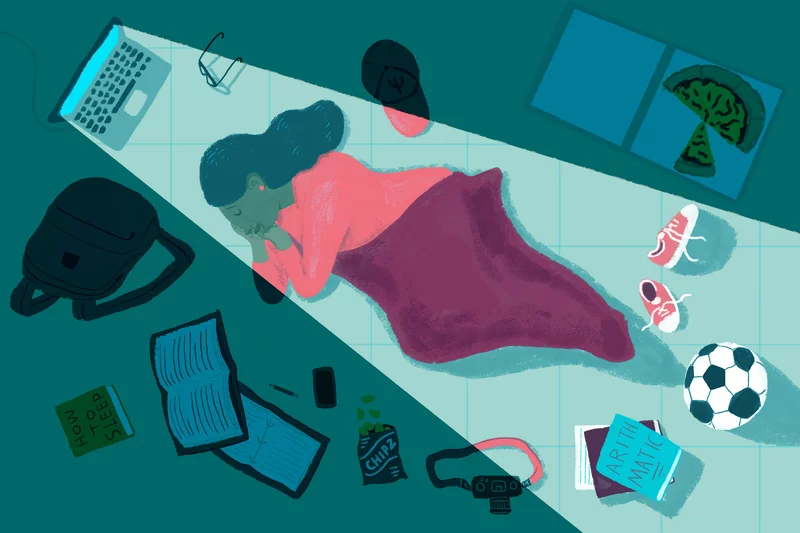Technology Overconsumption in Teenagers
Photo by LA Johnson/NPR
Research shows that technology affects the body’s natural sleep-wake cycle
Technology is prominent in everyday life, especially in the lives of teenagers. Including smartphones, tablets, gaming consoles, TVs, and computers, the American Academy of Child and Adolescent Psychiatry suggests that teenagers spend up to nine hours a day using and watching screens.
Being exposed to high levels of artificial light can have its consequences on the way that the human body functions.
The body follows what’s called a circadian rhythm, a sleep-wake cycle that controls how awake or tired we feel. Cell phones and other electronic devices emit blue light that prevents the production of melatonin, the hormone that controls the circadian rhythm.
This creates an imbalance, making it more difficult to fall asleep and wake up in the morning, especially if someone uses their phone right before falling asleep.
A Harvard Medical School article writes that having the recommended amount of sleep, eight to ten hours for a teenager, is key to good, healthy brain development.
When in a deep sleep, the body enters various stages of sleep. The stage of sleep that is needed to process and store information from the day is called REM sleep. With a lack of sleep, paying attention in class is not enough to solidify that information into memory.
Video games, social media, and other activities online have reward systems similar to a slot machine. These can lead to obsessive tendencies with technology. Any young person, teenagers included, do not have a matured self-control system to prevent this from happening.
This can lead to problems like sleep deprivation, which is something that plagues many teenagers.
An article by Stanford Medicine states, “Sleep deprivation increases the likelihood teens will suffer myriad negative consequences, including an inability to concentrate, poor grades, drowsy-driving incidents, anxiety, depression, thoughts of suicide and even suicide attempts.”
It is difficult to find a way to take a break from technology. From school, home or otherwise, everything is connected. Entertainment, news, homework and more have transitioned into the digital space.
If possible, it is recommended that you take some time to step away from screens. Take a walk, go out with friends or read a book. You may see significant improvements in your health because of it.

Amna Nukic is a senior. She has been involved with the journalism program since her sophomore year and enjoys writing. Other than writing, her other interests...



